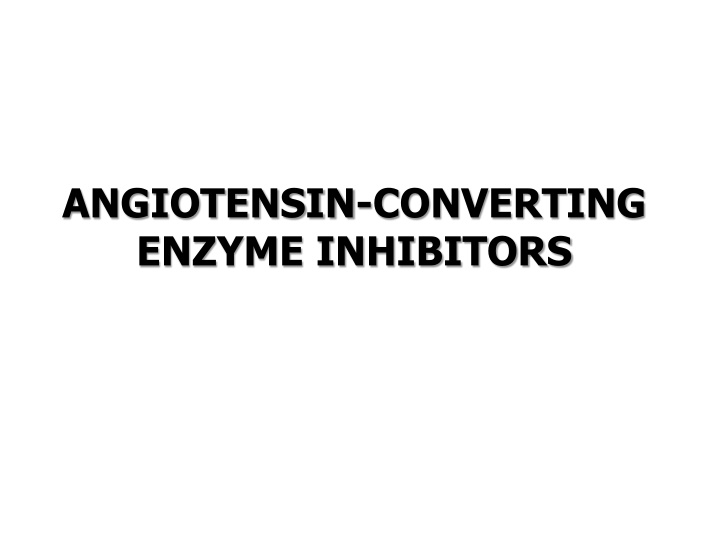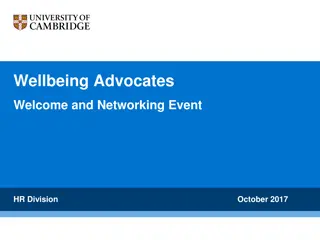
Understanding ACE Inhibitors and Their Effects
ACE inhibitors are widely prescribed antihypertensive drugs that work by blocking angiotensin-converting enzyme. They help lower blood pressure, increase cardiac output, and improve blood flow. Despite being generally well-tolerated, ACE inhibitors can cause side effects like angioedema and cough. Treatment for ACE inhibitor-induced angioedema depends on the severity of swelling and must prioritize airway management.
Download Presentation

Please find below an Image/Link to download the presentation.
The content on the website is provided AS IS for your information and personal use only. It may not be sold, licensed, or shared on other websites without obtaining consent from the author. If you encounter any issues during the download, it is possible that the publisher has removed the file from their server.
You are allowed to download the files provided on this website for personal or commercial use, subject to the condition that they are used lawfully. All files are the property of their respective owners.
The content on the website is provided AS IS for your information and personal use only. It may not be sold, licensed, or shared on other websites without obtaining consent from the author.
E N D
Presentation Transcript
ANGIOTENSIN-CONVERTING ENZYME INHIBITORS
ACEIs are among the most widely prescribed antihypertensive drugs. In general, these drugs are well absorbed from the GI tract, reaching peak serum conc. within 1 to 4 hours. These drugs are primarily eliminated through the kidneys.
ACEIs binds directly to the active site of ACE, which is found in the lung and vascular endothelium, preventing the conversion of angiotension I to angiotensin II. Because angiotensin II is a potent vasoconstrictor and stimulant of aldosterone secretion, so prescription of ACEIs cause: vasodilation; decreased peripheral vascular resistance; decreased blood pressure; increased cardiac output; and a relative increase in renal, cerebral, and coronary blood flow.
The hypotensive response may be severe in select patients after their initial dose, resulting in syncope and cardiac ischemia. Patients who are hypovolemic from concomitant diuretic use appear to be at greatest risk.
However, these drugs are well tolerated and have a very low incidence of side effects. Some reported adverse effects include rash, hyperkalemia, chronic cough, and angioedema. ACEIs are teratogens and should never be used by pregnant women.
ACEI-Induced Angioedema Angioedema is an inflammatory reaction in which there is increased capillary blood flow and permeability, resulting in an increase in interstitial fluid. If this process is confined to the superficial dermis, urticaria develops; if the deeper layers of the dermis or subcutaneous tissue are involved, angioedema results.
Because ACE inactivates bradykinin and substance P, ACE inhibition results in elevations in bradykinin conc. that appear to be the primary cause of both ACEI-induced angioedema and cough.
Treatment varies depending on the severity and rapidity of the swelling. Because its involve the tongue, face, and oropharynx, the airway must remain the primary focus of management. All patients with mild or quickly resolving angioedema should be observed for several hours to ensure that the swelling does not progress or return.
Outpatient therapy with a short course of oral antihistamines and corticosteroids is appropriate. Such patients should be instructed to discontinue ACEI therapy permanently and to consult their primary care physicians about other antihypertensive options. Because this is a mechanistic and not allergic adverse effect, the use of any other ACEIs is contraindicated.
ACEIs overdose manegment Supportive care and in most cases, AC alone is sufficient. In rare cases, catecholamines may be required.






















